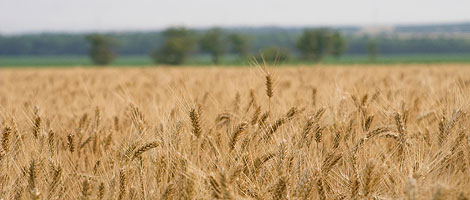I expect volatility out of any position in commodities–especially in this economy with war raging in Ukraine and sanctions raining down on Russia.
And I welcome the volatility–it’s what I buy commodities for right now–as long as I get paid for taking on that risk.
But I’m not looking to take on extra risk or volatility–especially when it’s a result of a big regulatory error by the sponsor of an commodity fund.
Which is exactly what I’ve received lately from my investment in the iPath Series B Bloomberg Agriculture Subindex Total Return ETN (JJA).
Maybe you noticed the huge tumble on May 6. The ETN opened that day at $35.71 and closed at $27.80. That’s a drop on the day of 22.2%.
So what happened?
Fallout from a big mistake at Barclays, the sponsor of the ETN. The manager of a fund that is supposed to follow an index, like this one is supposed to follow the Bloomberg Agriculture Subindex, has to issue more shares when money flows into the fund from investors who like the assets that the fund invests in. Putting money into commodities has been a popular move in the chaos resulting from the Ukraine and its effects on the price of commodities from wheat to oil. So Barclays was supposed to issue more shares to soak up that cash so that the price of shares continued to track the net asset value of the assets held by the fund.
I say “Supposed to” because Barclays discovered, suddenly, that it couldn’t sell more shares. The company was operating under a ceiling on how many shares it could sell imposed by regulators as a result of earlier problems at Barclays. Somehow the company failed to notice that it was over that limit. Which caused another regulatory problem that would require Barclays to restate the financial statements in its annual Form 20-F for 2021. And that required Barclays to halt further sales of 30 iPath ETNs, including the iPath Series B Bloomberg Agriculture Subindex Total Return ETN.
The suspension of sales by Barclay’s doesn’t effect the ability of shareholders to buy or sell on the market. But it does open the fund to extra volatility when net asset values deviate from the price of shares.
No thanks.
So tomorrow May 20, I’m selling shares of this ETN out of my Jubak Picks Portfolio with a gain of 3.33% since I added it to the portfolio on March 28, 2022.
And, since I still want exposure to commodities in this environment I’m replace that fund with the Invesco DB Agriculture Fund ETF (DBA).
The fund has more assets than the iPath ETN, $2.3 billion to $29.7 million. Which means more liquidity and less risk in this market environment. The ETF’s expense ratio is 0.85%. Total return for the year to date as of the close on May 19 is 13.42%.
The portfolio includes a 7.4% position in corn futures, 6.15% in soy bean futures, and 4.24% in wheat futures.
Barclays expects to reopen sales of those 30 ETNs later in the year.
I own other Barclay ETNs in my portfolios. I’ll be selling those as I find good alternatives.


